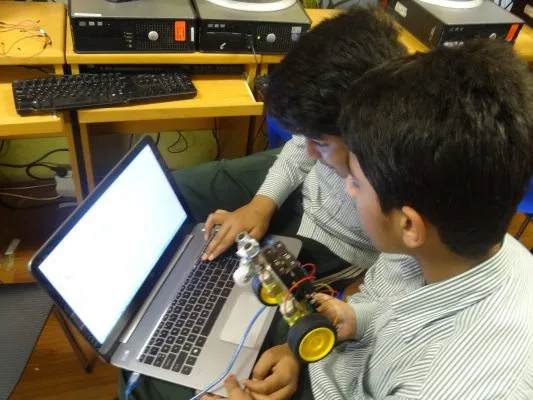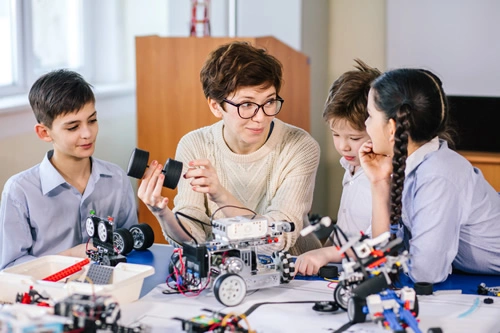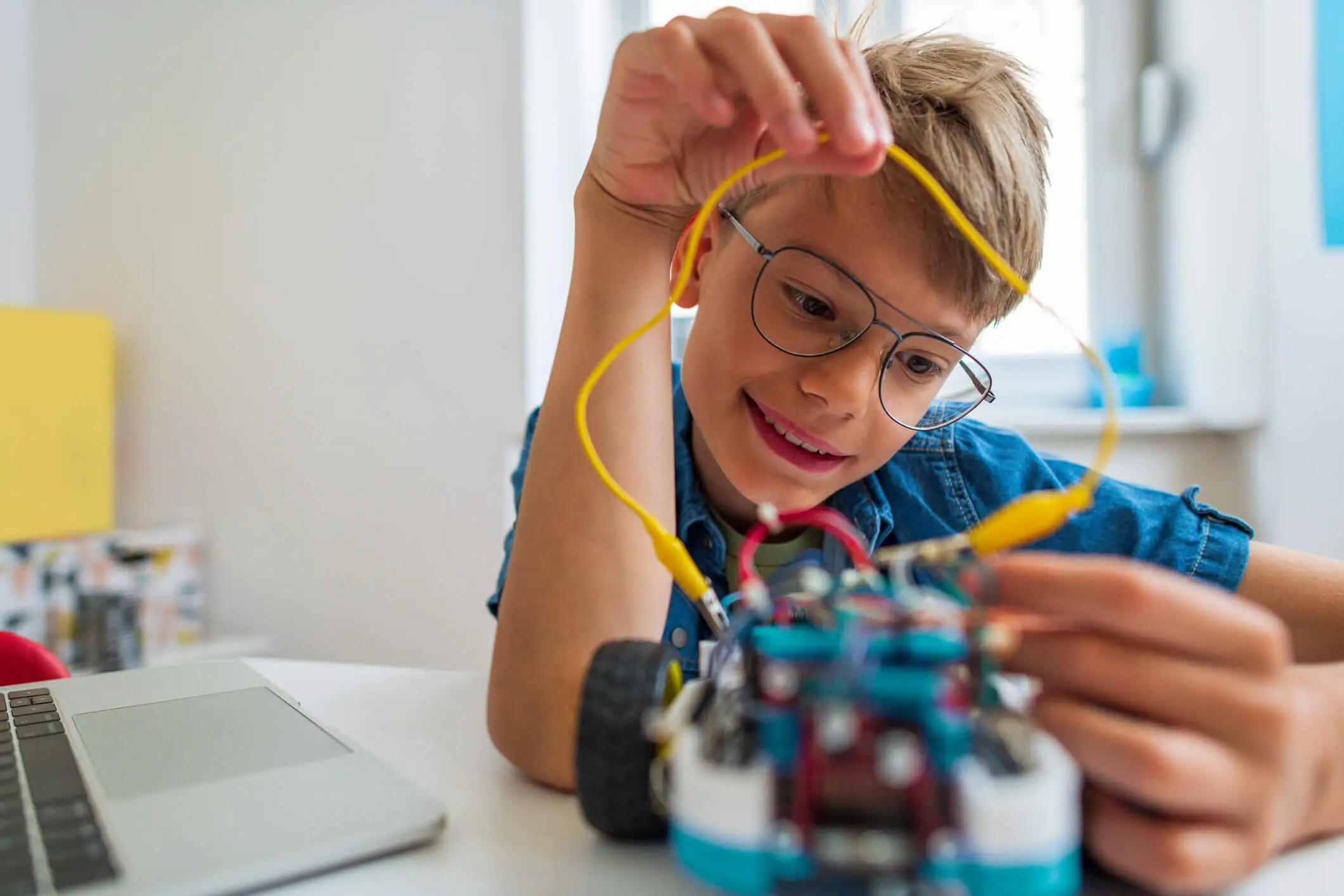PRO LEVEL



- Introduction to Robotics and Arduino: Basic concepts, robot design, and Arduino programming essentials. Understanding Sensors: Functionality, integration, and application of various sensors in robotics projects.
Explore foundational robotics concepts and Arduino programming for beginners. Understanding Sensors: Learn about different sensors, their working principles, and integration techniques.

Module 1: Introduction to Drones and AI
- Overview of drone technology and its applications.
- Introduction to Artificial Intelligence (AI) and its role in drones.
- Historical perspective and evolution of drones and AI integration.
- Ethical considerations and regulatory frameworks for drone usage.
Module 2: Fundamentals of Drone Technology
- Components of a drone: frame, motors, propellers, flight controller, sensors, etc.
- Types of drones: fixed-wing, multirotor, hybrid, etc.
- Principles of flight dynamics and aerodynamics.
- Safety precautions and best practices for operating drones.
Module 3: Sensors and Data Acquisition
- Overview of sensors used in drones for navigation, stabilization, and data collection.
- Types of sensors used in drones: GPS, IMU, altimeter, cameras, LiDAR, etc.
- Data acquisition techniques and sensor fusion for accurate navigation and mapping.
- Hands-on exercises: Interfacing sensors with drone platforms.
Module 4: Introduction to Artificial Intelligence
- Basics of Artificial Intelligence and Machine Learning.
- Supervised, unsupervised, and reinforcement learning paradigms.
- Applications of AI in drone technology: object detection, tracking, path planning, etc.
- Introduction to neural networks and deep learning algorithms.
Module 5: AI Techniques for Drone Applications
- Overview of AI techniques used in drone applications.
- Image processing and computer vision for object detection and recognition.
- Deep learning models for autonomous navigation and decision-making.
- Reinforcement learning for adaptive and autonomous drone control.
Module 6: Autonomous Drone Systems
- Principles of autonomous drone systems and architectures.
- Components of an autonomous drone system: perception, planning, control.
- Integration of AI algorithms into drone control systems.
- Case studies and real-world examples of autonomous drone applications.
Module 7: Project Development
- Guided project development phase.
- Students work in teams to apply their knowledge and skills acquired in previous modules to design and build an AI-powered drone project.
- Each team selects a project idea, plans the design, implements the hardware and software components, and presents their project at the end of the module.
Module 8: Project Presentation and Evaluation
- Final project presentations by student teams.
- Evaluation of projects based on creativity, functionality, and technical implementation.
- Feedback and discussion on project outcomes.
- Certificate distribution for successful completion of the course.
Module 9: Future Trends and Opportunities
- Emerging trends in drone technology and AI integration.
- Opportunities for innovation and entrepreneurship in the drone industry.
- Careers and research opportunities in AI-powered drone development.
- Resources for further learning and professional development in the field..






